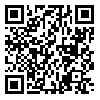Volume 1, Issue 1 (2013)
Health Educ Health Promot 2013, 1(1): 3-12 |
Back to browse issues page
Download citation:
BibTeX | RIS | EndNote | Medlars | ProCite | Reference Manager | RefWorks
Send citation to:



BibTeX | RIS | EndNote | Medlars | ProCite | Reference Manager | RefWorks
Send citation to:
Bashirian S, Hidarnia A, Allahverdipour H, Hajizadeh E. The Theory-Based Substance Abuse Prevention Program for Adolescents. Health Educ Health Promot 2013; 1 (1) :3-12
URL: http://hehp.modares.ac.ir/article-5-2161-en.html
URL: http://hehp.modares.ac.ir/article-5-2161-en.html
1- School of Health, Hamedan University of Medical Sciences and Health Services, Hamedan, Iran
2- School of Medical Sciences, University of Tarbiat Modares, Tehran, Iran, Tehran
3- School of Health, Tabriz University of Medical Sciences, Tabriz, Iran, Tabriz
2- School of Medical Sciences, University of Tarbiat Modares, Tehran, Iran, Tehran
3- School of Health, Tabriz University of Medical Sciences, Tabriz, Iran, Tabriz
Abstract: (18696 Views)
Aims: Adolescence is one the most precarious periods of life, concerning the drug abuse. The social cost of the drug abuse and injury among adolescents is extraordinary and requires intervention. The theory of planned behavior (TPB) is perhaps the most influential theory for prediction of social and health behaviors including drug abuse. This study aimed at designing and implementing a curriculum based on the TPB for preventing adolescents from drug abuse. Methods and Materials: This quasi-experimental study was conducted in Hamadan, west Iran. We recruited 140 male high school students from randomly selected schools: they were divided into experimental group, n = 70 and control group, n = 70. The experimental group received 20 hours educational program based on the TPB. The control group receives no intervention. Findings: Compared to the control group, experimental group have significantly elevated post test scores for attitude (19.07 vs. 15.28, p < .001), subjective norm (18.08 vs. 16.45, p < .001), perceived behavioral control (51.67 vs. 54.82, p < .001); and their intention to use drug significantly decreased(p = 0.082) Conclusions: The TPB-based educational program may be effective in prevention of substance abuse among adolescents.
Article Type: Original Article |
Subject:
Theory and Model in Health Education and Promotion
Received: 2012/10/28 | Accepted: 2013/03/1 | Published: 2013/06/16
Received: 2012/10/28 | Accepted: 2013/03/1 | Published: 2013/06/16
| Rights and permissions | |
 |
This work is licensed under a Creative Commons Attribution-NonCommercial 4.0 International License. |





